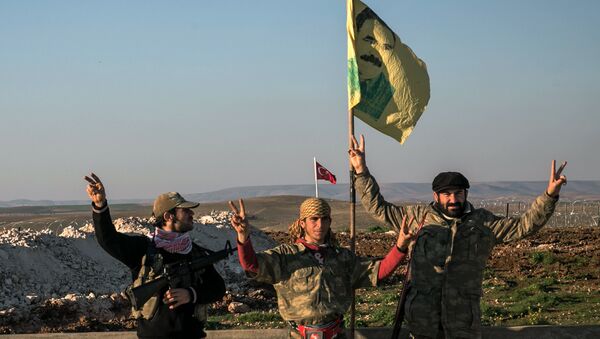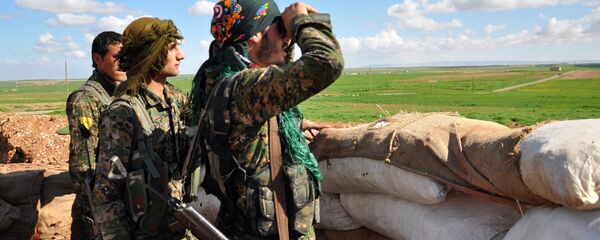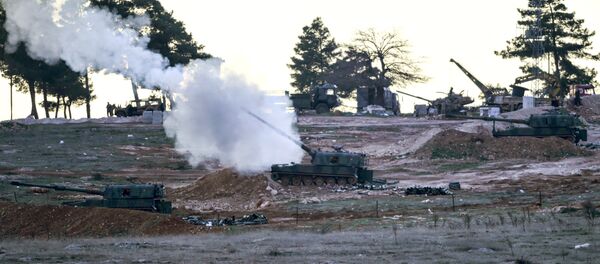The political significance of the new mission, officially registered as a non-commercial organization, was not lost on foreign commentators.
Interviewing Rodi Osman, the head of the new diplomatic mission, International Business Times emphasized that "the young official has made diplomatic history as the first head of a foreign mission for the Kurdish-led administration that controls large swathes of northern Syria wrested from Damascus during the bloody civil war."
And while IBT isn't exactly being honest about the Kurds 'wresting the area from Damascus' (Syrian government troops withdrew from the area independently to fight elsewhere in 2012, with YPG People's Protection Units, the armed wing of the PYD, stepping in to defend the areas against jihadist militants), the newspaper's point about "making diplomatic history" is a valid one.
#Kurdish groups in #Syria have opened a representative office in #Moscow pic.twitter.com/tEIM4MRyNC
— Nalan Sipar (@NalanSipar) 10 февраля 2016
"The Moscow location of the office," the paper noted, "reflects the Kremlin's increasingly active presence in the Middle East and the game-changing effect of Russia's five-month bombing campaign in support of Syrian President Bashar Assad."
Moreover, "Turkey has been enraged by the gradual Kurdish expansion in northern Syria, fearing it will stoke separatist ambitions among its own Kurdish population. Amid advances by Assad's troops under the cover of Russian airstrikes, the Kurdish YPG militia seized ground near the Turkish border in recent weeks, including the strategically important Menagh airbase. Turkey responded to Kurdish gains last week with artillery attacks on Kurdish fighters."
"The worsening of relations with Turkey has made Russia more daring in its relations with the Kurds," Elena Suponina, a senior analyst specializing in the Middle East at the Russian Institute for Strategic Studies, told IBT.
Ultimately, the newspaper warns, "the Kurds will have to tread a fine line. Kurdish fighters have received military backing from the United States, and echoing the Russian line too closely could alienate their Western backers."
John Kirby: PYD is our strong partner!
— Mehmet Sait Şahinalp (@MSHNLP) 10 февраля 2016
Yes Mr State Dep. Spox, your "strong partner" opens an office in #Moscow! pic.twitter.com/oTQUChwP64
At the same time however, the paper reports, citing Osman's words, that "similar offices to the one in Moscow will be opened in Germany, Sweden and Denmark within a month."
"If Russia accepts the opening of a representative office for Western Kurdistan it means Russia is prepared to accept a multi-confessional federation in Syria," the PYD official added, effectively debunking suggestions by some analysts that the Kurds want 'independence' from Syria.
"In 1946, the Soviet Union backed the creation of the Mahabad Kurdish Republic in Northern Iran, and there were allegations in the 1980s that Moscow financed the Kurdistan Workers' Party (PKK) when it began an insurgency against Ankara."
"Even before the opening of the representative office in Moscow, there have been signs of warming ties between Russia and the Kurds, who live not only in Syria, but also Turkey, Iraq and Iran. Masoud Barzani, current president of Iraqi Kurdistan and the son of Kurdish rebel leader Mustafa Barzani, who lived in the Soviet Union for eight years, was received by [Foreign Minister Sergei] Lavrov in Moscow in 2013."
Ultimately, Suponina told the paper, "the strengthening of ties between Russia and the Kurds started several years ago and is tied to Russia's new Middle Eastern engagement."






